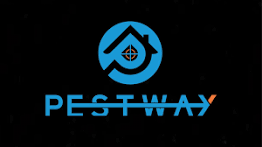
It’s fun to feed raccoons. They will consume pet food right out of a bowl, and they will be cute about it. They sit there, with their little hands, and they get the food, and it’s fun. They will consume almost anything, and if there’s water close by, they may soak the food in the water. They’ll return every night for your viewing pleasure. Great, right? Raccoon removal service Grand Rapids warns of the risks involved with returning raccoons.
While it might be fun to feed raccoons, it’s not a great thing to do. The problem is that in the natural surroundings (your neighborhood), there is only a particular amount of food for each animal. If you put extra food outside, the animals will eat it, and they will grow plump and healthy and more of their babies will make it through, and so on. The problem is that if the food ever stops there won’t be enough food to sustain these animals, who have actually made a routine of visiting your home. Now they will begin to starve, they will compete with other animals, and all of the animals will suffer.
Lose the Fear of Humans
Contents
You’ve now trained a raccoon to look to people for food. You stand a much higher risk of raccoons tearing into your roof or soffit, trying to nest there.
Spreading Diseases

Increasing the animal population in an area, due to feeding, means more crowding and spread of disease, particularly when the food supply is irregular or stops completely.
It’s advisable not to feed raccoons, either on purpose or by mistake, such as via garbage cans or animal food. In many cases, aggressive raccoons cause problems with lots of clingy animals fighting for scraps.
You can avoid raccoons from entering your home, but you’re not going to achieve it with any commercial items. Do not feed raccoons; leaving out items like garden compost, animal food, fallen fruit, and garbage bags will only encourage wildlife to investigate your property. Few animals will turn their noses up at a free meal, and a raccoon is no exception.
Risks Associated With Feeding Raccoons?
Raccoons are wild animals trying to find a readily available food source, and feeding them will encourage them to keep coming back for more. While you might believe you are doing a good deed by feeding raccoons, you could really be threatening the health of your family and your pets.
Raccoons Shouldn’t Be Encouraged to Visit Homes
If you deliberately feed raccoons you may be welcoming a threat. Your pet might interact with the raccoon, get the disease, and transfer it to you. As soon as you establish the practice of feeding raccoons they will keep coming back to your location.
You can’t anticipate wildlife behavior therefore for your own safety in addition to that of pets, it is best that you prevent interactions. Wild raccoons, for example, might end up being aggressive and scratch or bite. These scratches or bites make rabies transition even simpler. It is very important to keep wildlife animals like raccoons at bay.
Raccoons often carry rabies, which can be transmitted via biting, and their urine and feces can likewise spread out disease. Raccoon secretions, for instance, can transfer leptospirosis, a bacterial infection that can trigger flu-like symptoms or even kidney and liver problems.
The bottom line: you don’t want to feed them and encourage them onto your property.
Also Read:
Damage Caused By Raccoons
